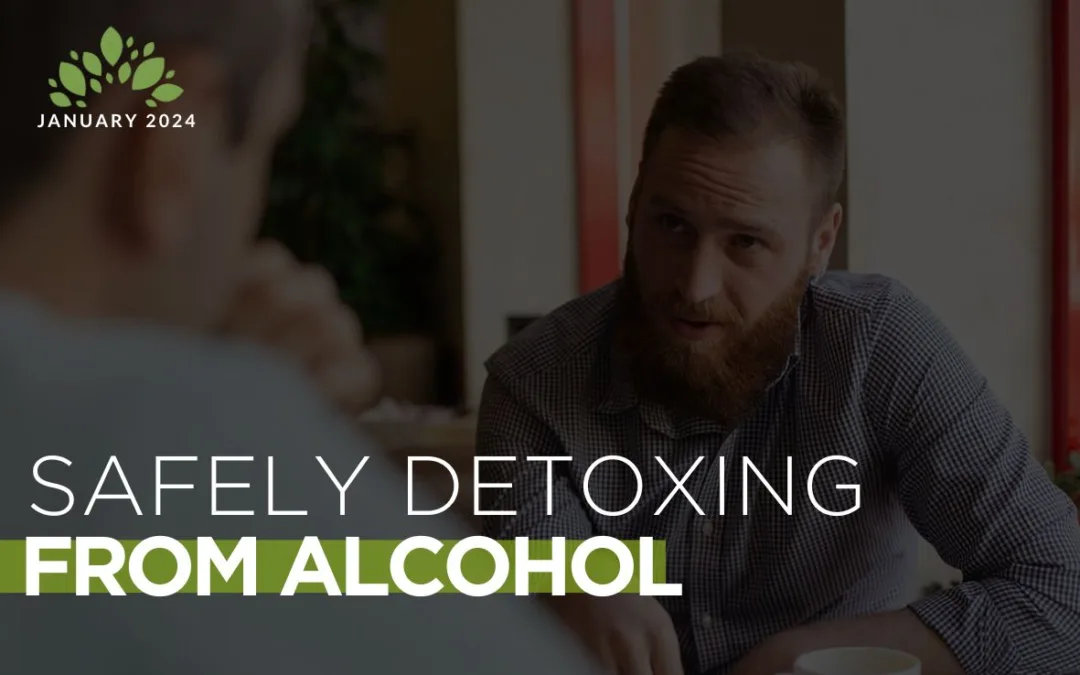The Importance of Safely Detoxing from Alcohol
The relationship between trauma, mental health challenges, and alcohol is a complex and intricate one. For many individuals, alcohol becomes a refuge, a way to temporarily numb the anguish of their emotional scars or the relentless battles within their minds. However, this reliance on alcohol as a coping mechanism can have devastating consequences for both mental and physical well-being. Let’s delve into the imperative reasons why safely detoxing from alcohol is not just a choice but a necessity, especially for those who have used it as a crutch to navigate the complexities of trauma and mental health struggles.
Avoid Life-Threatening Complications
Alcohol withdrawal can be a dangerous and potentially life-threatening process. When a person with a heavy alcohol dependence suddenly stops drinking, they may experience severe withdrawal symptoms, including seizures, hallucinations, delirium tremens, and high blood pressure. These complications can be fatal if they are not properly managed. In 2022, a study reported by the National Library of Medicine found that the mortality rate for delirium tremens with treatment ranges from 5% to 15%. However, without medical care, the mortality rate jumps to approximately 37%. Seeking medical supervision during detox ensures that professionals can monitor your condition and intervene if necessary, significantly reducing the risk of life-threatening complications.
Alcohol withdrawal symptoms can vary widely from person to person, depending on factors such as the duration and intensity of alcohol use. Common symptoms include anxiety, insomnia, nausea, sweating, and tremors. Some individuals may also experience severe depression or mood swings during the detox process. Medical supervision provides access to medication and therapies that can help alleviate these symptoms, making the detox process more bearable and increasing the chances of success.
Attempting to detox from alcohol alone can be incredibly challenging, and many individuals find themselves unable to cope with the intense cravings and withdrawal symptoms. Relapse is common among those who attempt self-detox, often leading to a return to excessive alcohol consumption. Medical detox programs not only provide physical support but also offer counseling and therapy to address the psychological aspects of addiction, reducing the risk of relapse.
Detoxing from alcohol is just the first step on the path to recovery. It is crucial to view detox as a bridge to further treatment, such as rehabilitation or counseling. Under the guidance of medical professionals, you can develop a personalized treatment plan that addresses the underlying causes of your addiction and equips you with the tools to maintain sobriety in the long term.
Safely detoxing from alcohol is an essential and life-saving decision for those struggling with alcohol dependence. Seeking medical supervision during the detox process can help individuals avoid life-threatening complications, manage unpredictable withdrawal symptoms, prevent relapses, and ensure a smooth transition to comprehensive addiction treatment. Remember that recovery is a journey, and seeking professional help is the first courageous step toward a healthier and happier future. If you have any questions or need guidance regarding counseling after detox or our outpatient and partial hospitalization programs, don’t hesitate to reach out to us at Aspire. We are here to provide support, answer your inquiries, and assist you on your path to recovery. Your well-being is our priority.
I’m looking to help
Myself
I’m looking to help
A Loved One
I’m looking to help
A Teen
Receive a Free Consultation Today
We’re Available 24/7 at (888) 585-7373 or Fill Out This Form

Planting Seeds, Saving Lives
Copyright © 2026 Aspire Counseling Services® | Privacy Practices | Terms and Conditions | Powered & Designed by Citryn, LLC

MENU
LOCATIONS

